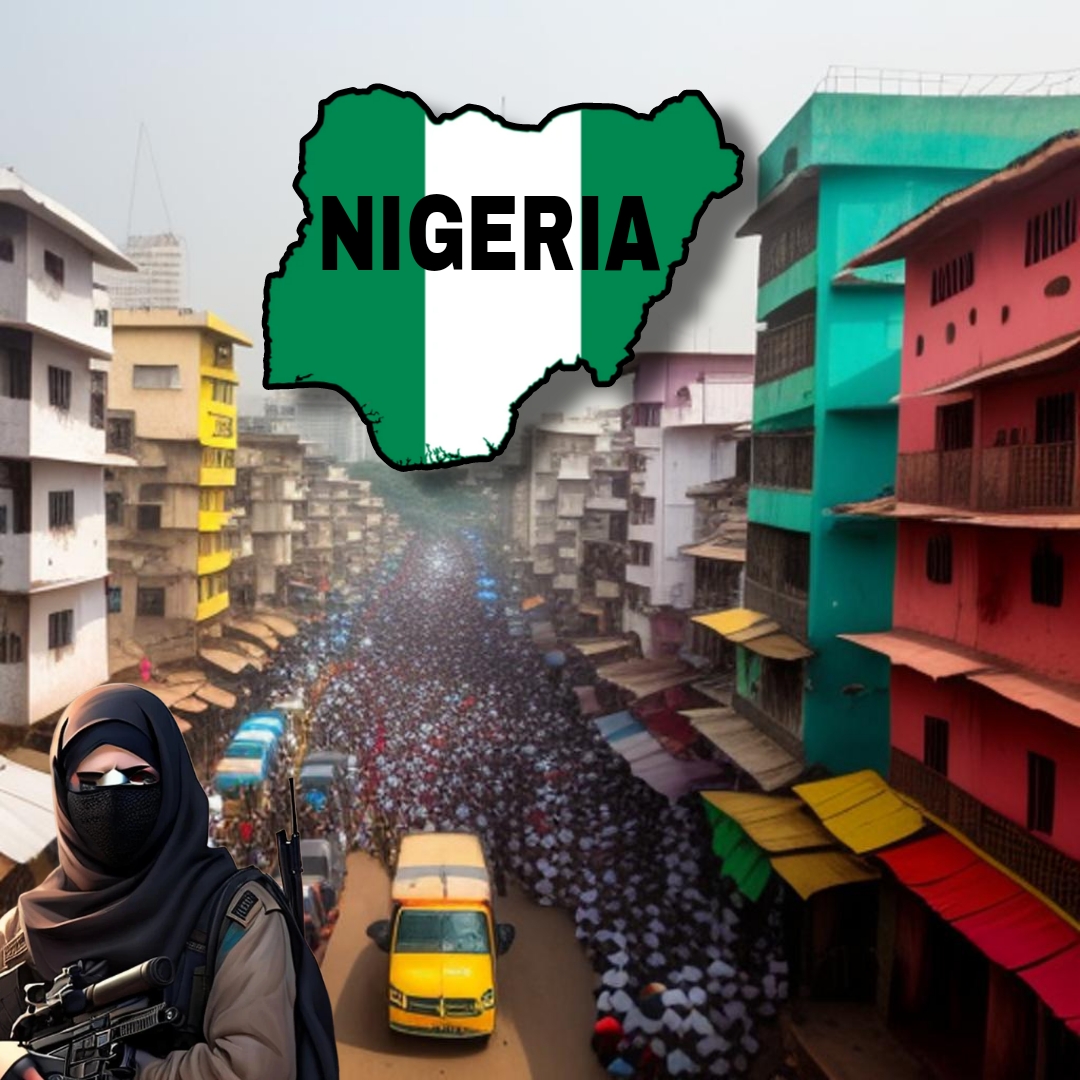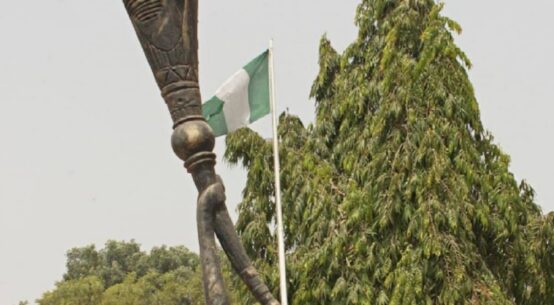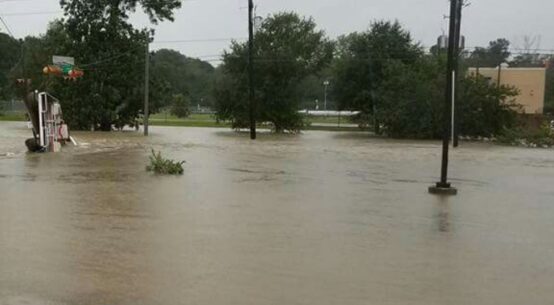In a tragic series of attacks, approximately 113 people have been killed in recent violence across Nigeria, with many of the victims being Christians.
As the holy season of Easter approaches, believers in the country find themselves increasingly vulnerable to terrorist groups, who continue to target religious minorities, particularly Christians, in an environment of escalating insecurity. The ongoing violence raises critical questions about the need for stronger regional cooperation and a unified African response to combat the growing threat of Islamic terrorism, not just within Nigeria, but across the continent.
A Nation in Crisis: Attacks on Christians Intensify
The latest wave of attacks has left entire communities in fear and mourning. Terrorist groups, notably Boko Haram and Islamic State West Africa Province (ISWAP), have escalated their operations, ruthlessly targeting civilians and churches. With Easter around the corner, Christian worshippers in Nigeria are more vulnerable than ever. For many Christians, this period marks a time of reflection, prayer, and community gathering; however, for those in conflict zones, it has become a season of fear.
These terror groups continue to operate with impunity, exploiting the vulnerabilities in Nigeria’s security structure. The attacks not only claim lives but also seek to disrupt the lives of those who wish to peacefully practice their faith. Attacks on churches, religious leaders, and worshippers are a frequent occurrence, and the country has seen churches burned to the ground, congregations terrorized, and religious leaders kidnapped or murdered.
The Need for Regional Action: A Call for a Continental Arm to Combat Terrorism
As the situation in Nigeria worsens, it has become increasingly clear that local and national efforts alone are insufficient to address the scale of the threat. The Nigerian government has made attempts to combat terrorist groups, but ongoing instability, corruption, and limited resources have hindered these efforts. Now, more than ever, it is crucial for African nations to recognize that terrorism is not just a Nigerian problem—it is a regional and continental threat.
The creation of a continental military and legal framework to tackle terrorism within Nigeria and other parts of Africa could help ensure a coordinated, strategic response to the crisis. The African Union (AU), which already has peacekeeping forces deployed in some regions, should consider establishing a dedicated continental arm focused specifically on counterterrorism operations. This could be modeled on the successful African Union Mission in Somalia (AMISOM), where the AU’s combined military forces have helped stabilize parts of Somalia. Such a framework could provide Africa with a unified and organized response to Islamic terrorist groups that operate across borders.
The Legal and Humanitarian Implications
From a legal perspective, the current wave of terrorism presents significant challenges to international human rights law and African legal frameworks. The targeting of civilians, especially religious minorities, constitutes a clear violation of both national and international law. The Nigerian government, alongside regional and international actors, must prioritize justice for the victims of these attacks, ensuring accountability for those who perpetuate violence.
Additionally, the response to terrorism must also be human-centric, addressing the root causes of radicalization and promoting peacebuilding initiatives alongside military action. Efforts to protect civilians, particularly religious minorities, should be integrated into broader legal reforms within the Nigerian government and the African Union. Legal mechanisms should be put in place to support victims of terrorism and religious persecution, providing them with avenues for restitution, relocation, and security.
Beyond the military and legal dimensions, African nations must invest in humanitarian support for the millions of displaced individuals affected by terrorist activity. In Nigeria, an estimated 3 million people are displaced due to insurgency, and many of them are Christian. The African Union, in partnership with the United Nations, should bolster efforts to provide these vulnerable populations with access to basic human rights, including shelter, food, healthcare, and education.
The Role of the International Community
While African nations bear the primary responsibility for addressing terrorism within their borders, the international community must also play an active role. The global fight against terrorism requires cooperation between national governments, international organizations, and non-governmental actors. Countries and organizations such as the United States, the European Union, and the United Nations must support Nigeria and its neighbors with both military aid and counterterrorism expertise.
Moreover, diplomatic efforts are essential in ensuring that foreign funding for terrorist organizations is curbed. Nigeria has long struggled with insurgents who are financed through illegal trade, kidnapping for ransom, and other illicit activities. International efforts to cut off these financing channels could have a significant impact on weakening terrorist groups and reducing their capacity to carry out attacks.
A Call for Protection and Prayer
As Nigerian Christians face heightened risks with the approaching Easter season, it is essential for the global community to stand in solidarity with them. Believers worldwide should pray for the protection of the Nigerian people and for all victims of terrorism. Christians in Nigeria, and across the African continent, should be able to worship freely without fear of violence. In addition to spiritual support, the international community must advocate for greater security measures and a comprehensive strategy to eradicate the root causes of terrorism.
It is a time for Africa to come together—not just in words, but in coordinated action—against the growing threat of Islamic terrorism. If Nigeria and other nations in West Africa are to stand a chance in this fight, the continent must unite. The proposed creation of a continental arm to combat terrorism would not only protect Nigeria but would also send a strong message that Africa will no longer be a passive bystander in the fight against extremism. The time for decisive action is now.
Conclusion: A Unified Response to Terrorism
The recent wave of attacks in Nigeria is a reminder of the persistent and escalating threat posed by Islamic terrorism across Africa. For too long, countries in the region have struggled to contain these groups on their own. The creation of a continental security framework focused on counterterrorism is a critical step toward ensuring the protection of African citizens and defending the fundamental right to worship freely. As African nations face this common threat, it is imperative that they stand united to protect their people, particularly vulnerable religious minorities, from the devastating impact of terrorism.
In the face of such violence and persecution, it is crucial that the international community not only pray for the protection of believers worldwide but also advocate for concrete actions to end the suffering and restore peace to the affected regions.









